TOP TIPS: How to Pack a Sea Kayak for Multi-day
Posted on Monday 7th September, 2015
I have finally got round to booking my ferry tickets to Corsica. This got me very excited and like most excited travellers I started thinking about packing. While I should have been working, I pulled all my gear out onto the lawn and 'checked' it was all in working order for my up and coming circumnavigation of Corsica. Every time I head off on a big trip I look at the huge pile of gear and say to myself 'That is never going to fit in there!' ... but it always does.
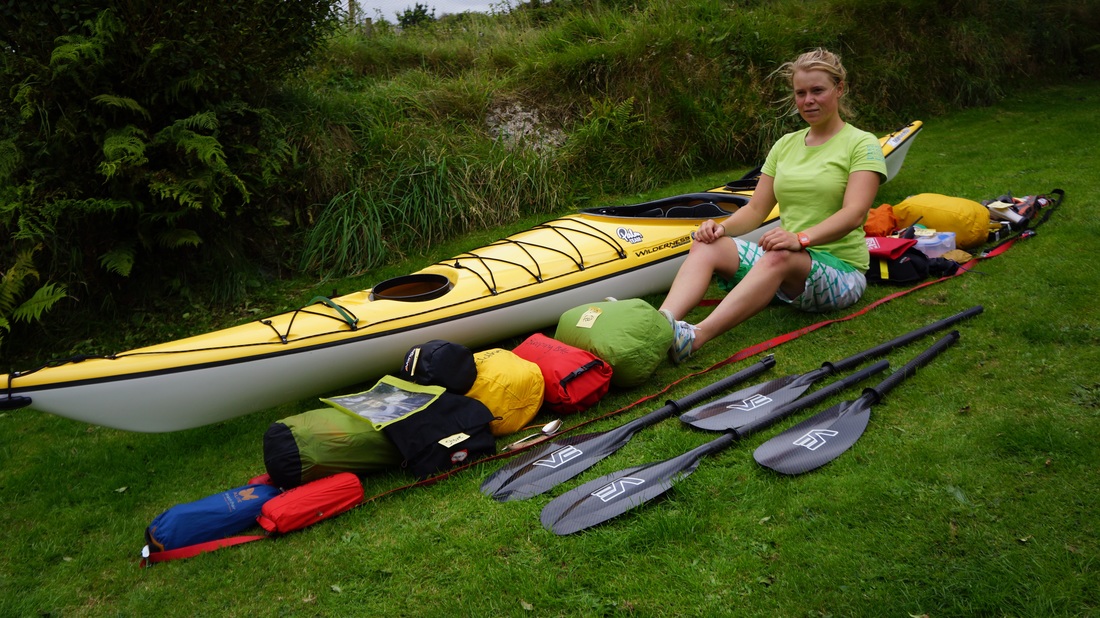
Here's my see-through kayak (you may need to use a bit of imagination for this).
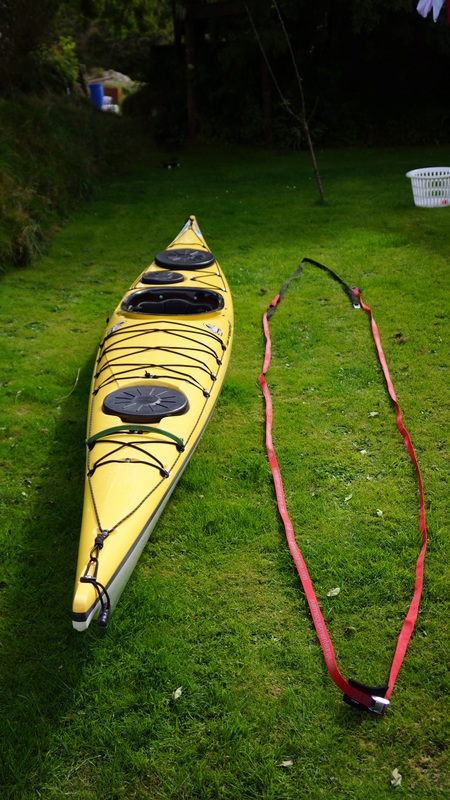
Yep that's it. The good thing about packing a kayak is it has only three hatches to stuff full, they are all pretty much watertight and you are allowed to pack a few luxuries (a little extra weight will still float just fine). The bad thing is the hatches are awkward shapes and nothing fits them easily.
To prevent hours of faffing I have a packing system, everything lives in a particular place and is always repacked in the same way. It's like doing an old favorite jigsaw rather than taking on a 1,000 piece monster, with no picture to guide you. There's nothing worse than waiting for a super slow packer when you want to make an early start on a big day of paddling.
Here are a few rules I try to stick to in order to keep my packing system.
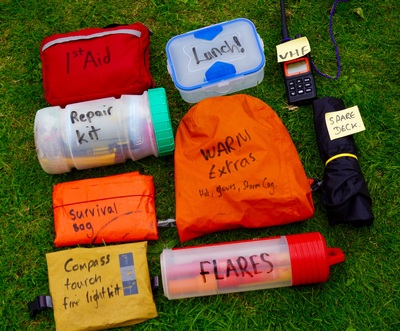
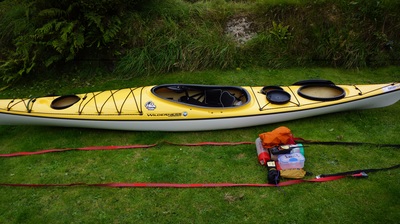
Packing Rules
1. Have a system and stick to it.
2. Try to pack weight evenly between the front and back.
3. All the things you need to get at during the day, live in the day hatch.
4. Everything goes in dry bags. (Everything!)
5. Lots of small dry bags are easier to pack than a few large ones. If you want to get really smart you can colour code your bags.
6. Use all the space in your boat (wine bottles fit perfectly in the pointy bit at the front).
7. Load heavy items at the bottom of the boat and avoid having gear on top of your deck. Keeping the center of gravity low (and you upright).
8. Keep food and fuel seperate.
9. Ikea bags are our friends.
What Goes Where?
Front Hatch
In my day hatch I pack all my safety gear, warm spare clothing and food for the day. Occasionally if I'm really tight for space other things may sneak in here, but they will always live at the bottom tucked out of the way. Bear in mind that this hatch is likely to get opened out on the sea, so be prepared for a little water to make its way in here.
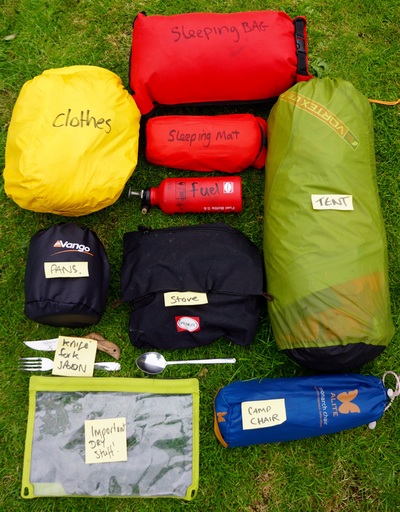
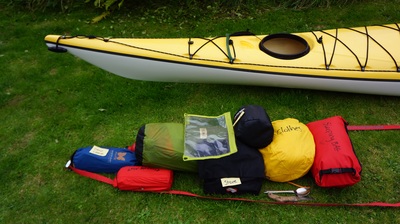
The reason I like everything in dry bags is because you can just pull it all out, load it into an Ikea bag and carry it up the beach to your chosen camp spot. I don't have to worry about keeping things dry once they come out of my hatch. Usually I use the same colour dry bags for certain things, that way I know a yellow bag will have clothes in and red bags, sleeping gear. I also double bag my sleeping bag. The one item I refuse to get wet is my sleeping bag, even if alls gone wrong, I like to be able to climb into a warm dry sleeping bag at the end of a hard day.
Back Hatch
This one usually has a larger hatch and can be easier to fit awkward shaped or larger bags into. It does also house the skeg box which can get in the way and on occasions may leak a little, so pack carefully around it. I normally pack food, more clothes and shoes in here.
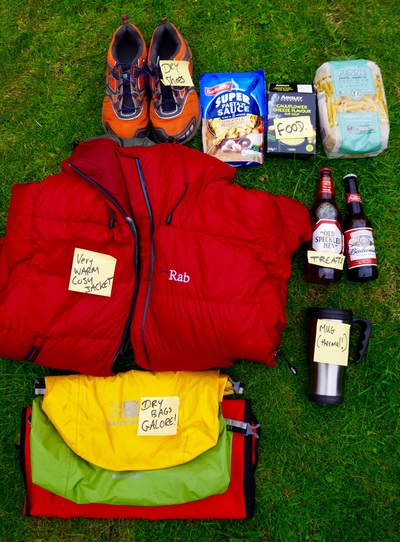
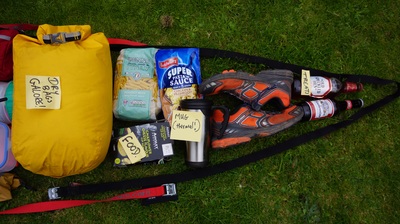
Hopefully you will have managed to balance the weight evenly between the back hatch and the front hatch. This is important as once on the water you want your boat to sit flat on the water. If all the weight is packed at one end then it will effect the trim of the boat and how it handles, escpecially in the wind.
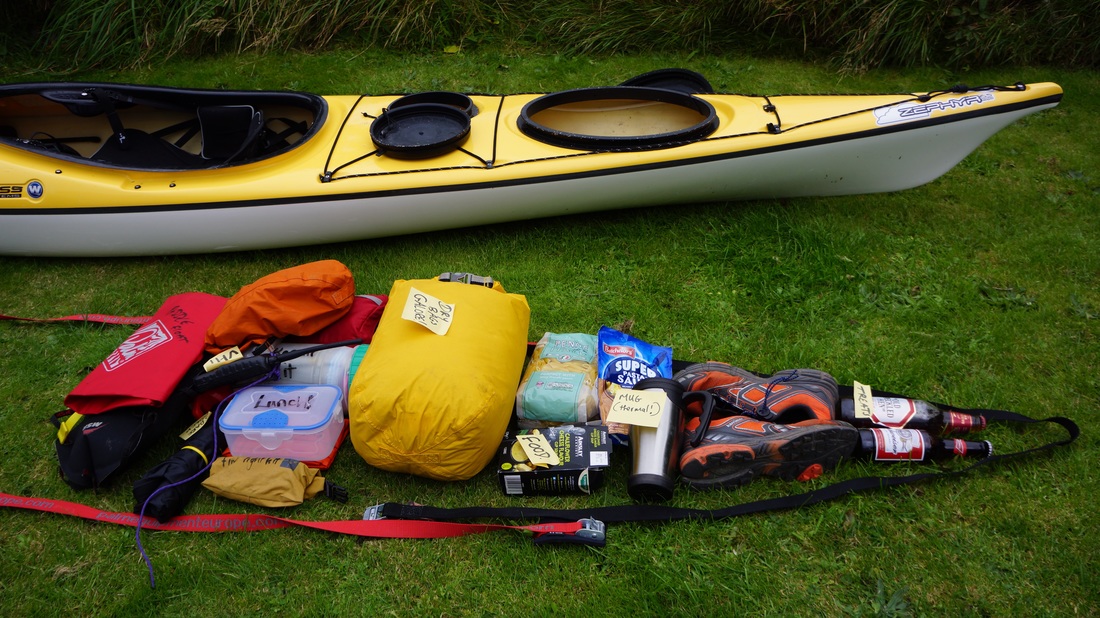
Cheeky Extra Space
Thats right, there are other little spaces we can make the most of. You know that gap behind your seat? Perfect for a six litre water bag, and it keeps the heavy weight of water in the middle of the boat.
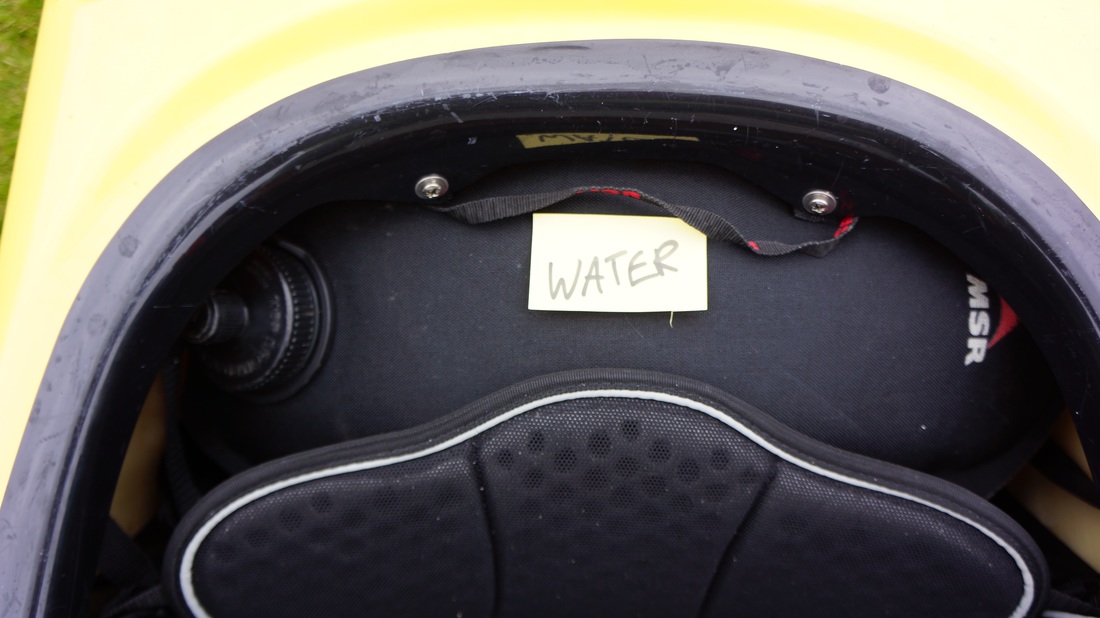
For all us shorties we get even more packing space. I often store food in front of my feet, I like to ensure it is in a dry bag with no straps and sits behind my foot rests.
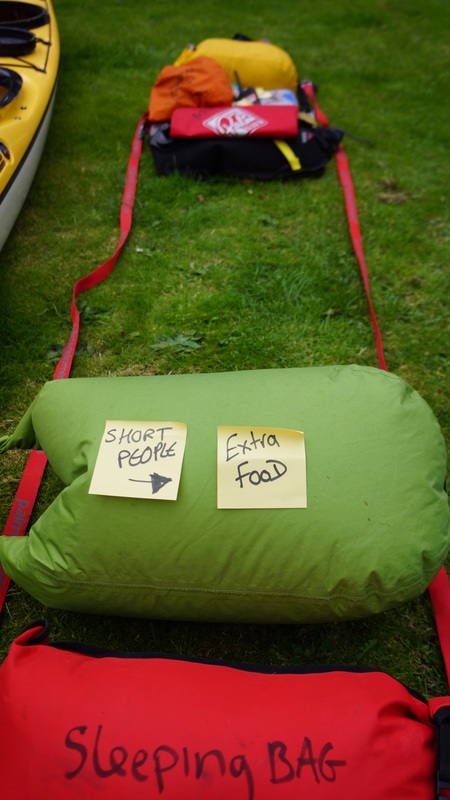
I like to carry snacks and water in my PDF. One of the great features of the Palm touring range is the hydration pocket where I can store my drinks bladder for the day. You will also find my knife, whistle and compass in my pockets.
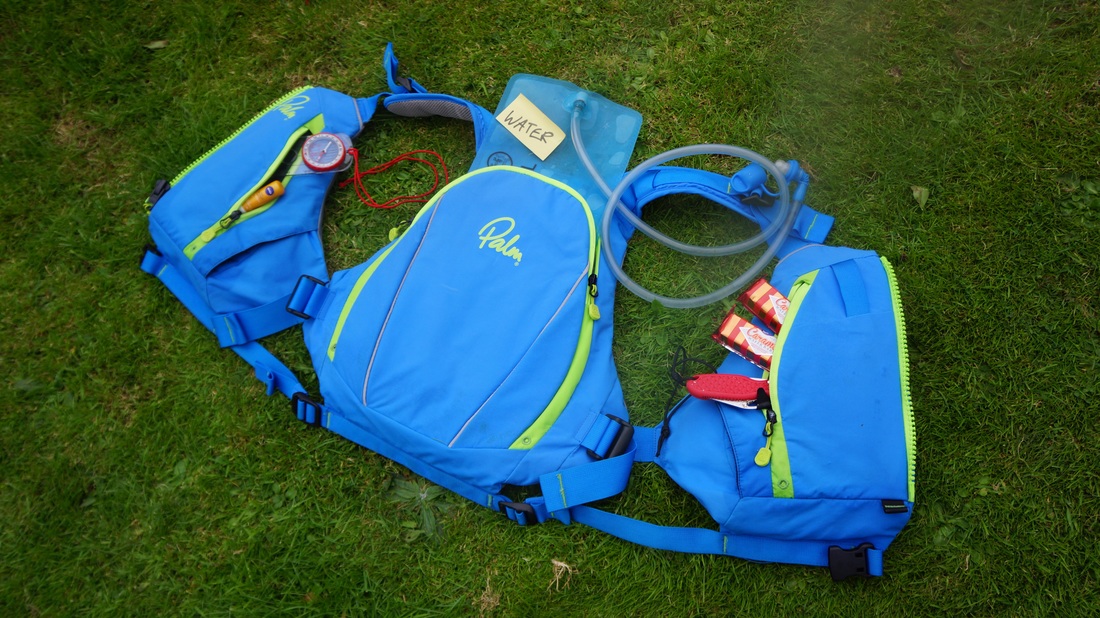
Just a few extras I like to throw in include a cut down roll mat, good for padding my seat out, or insulate under my feet, and also a good camping seat. A Buff is great to keep a bit of warmth in, but the my main reasons I wear a Buff is because it turns into a handy lensed cleaning cloth for my camera. A travel towel, good for mopping up spilt hot chocolate in the tent, drying out your wellies a little, or even so you can brave a swim (oh, and it makes a nice pillow when it's not wet). Power banks are amazing – I can keep my phone toped up and camera charged for a week at a time, all from a little blue battery box.
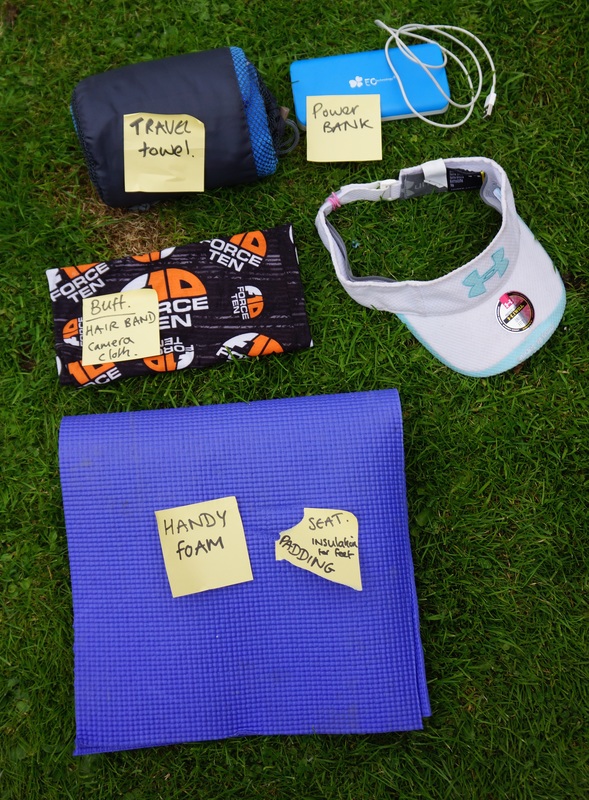
Hopefully you feel a little wiser on how to pack your sea kayak for your first or next expedition. One thing I would recommend is practice your packing a couple of times before you go. This way you will know where everything goes in your own packing jigsaw, also you may realize you want to take less or more. Once you have figured out what works for you, try to put everything in the same place each time, that way you always know where to find things, without having to unpack everything.
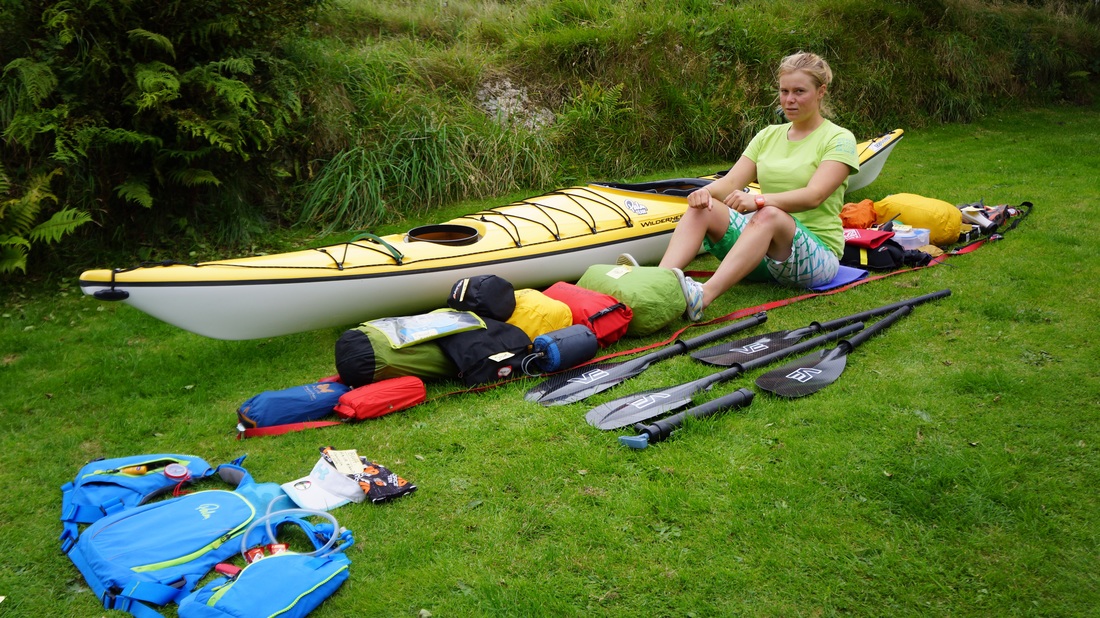
Erin uses VE Explorer Carbon Blades on a 2 piece carbon shaft for her adventures.
Recent Posts
- SUPBoarder’s first look at the VE Riva SUP paddle - May 2025
- Avoid the walkout – why everyone should carry a breakdown paddle - March 2024
- The Fara and Vanda – new lightweight touring blades - December 2023
- Fara paddle review by Dimitri Vandepoele - November 2023
- Win two days at Glenmore Lodge, a subscription to the Paddler and a VE paddle - September 2023
News Archive
- May 2025
- March 2024
- December 2023
- November 2023
- September 2023
- June 2023
- May 2023
- March 2023
- February 2023
- November 2022
- August 2022
- May 2022
- March 2022
- November 2021
- June 2021
- February 2021
- December 2020
- July 2020
- April 2020
- December 2017
- July 2017
- June 2017
- May 2017
- April 2017
- February 2017
- December 2016
- November 2016
- October 2016
- September 2016
- July 2016
- June 2016
- May 2016
- April 2016
- March 2016
- February 2016
- January 2016
- December 2015
- October 2015
- September 2015
- August 2015
- July 2015
- June 2015
- February 2015
- December 2014
- November 2014
- October 2014
- September 2014
- June 2014
- May 2014
- April 2014
- January 2014
- November 2013
- September 2013
- May 2013
- April 2013
- March 2013
- February 2013
- January 2013
- December 2012
- November 2012
- October 2012


